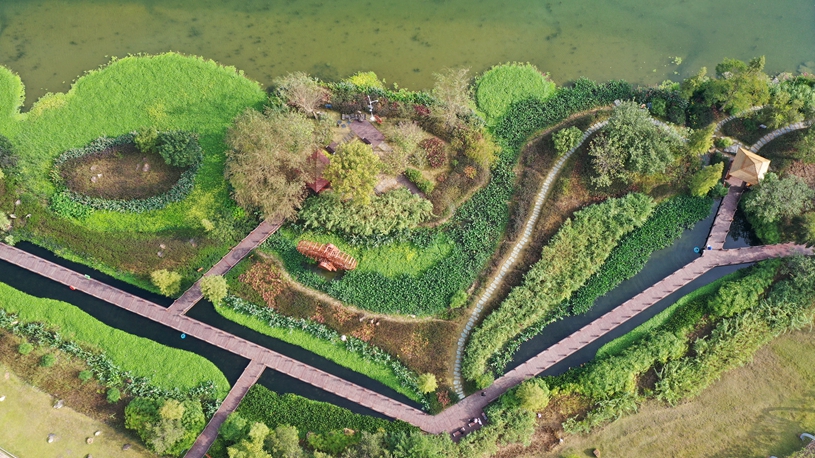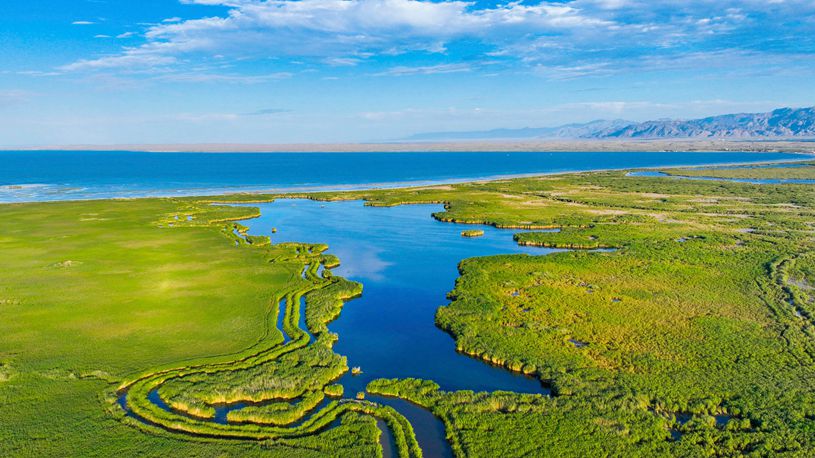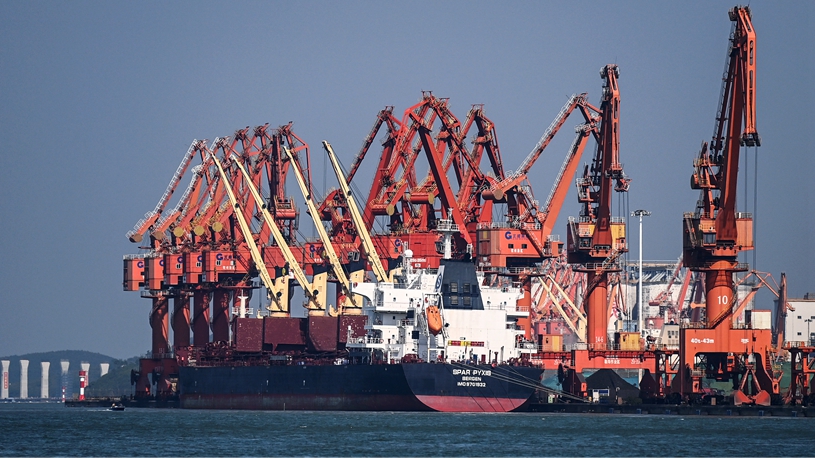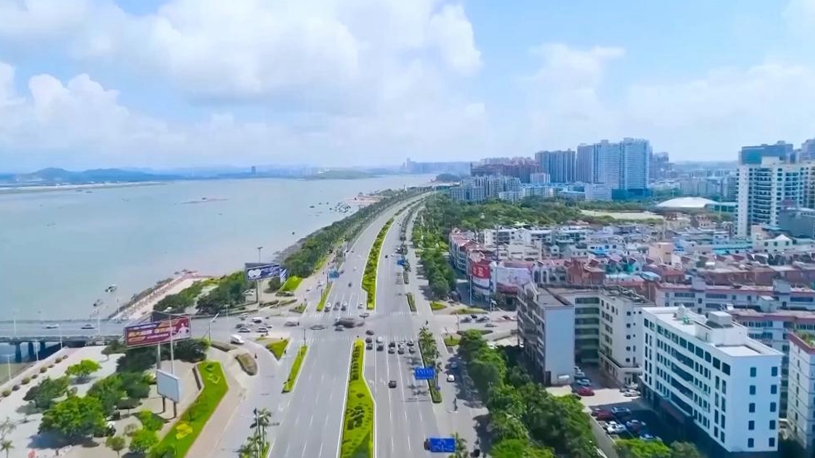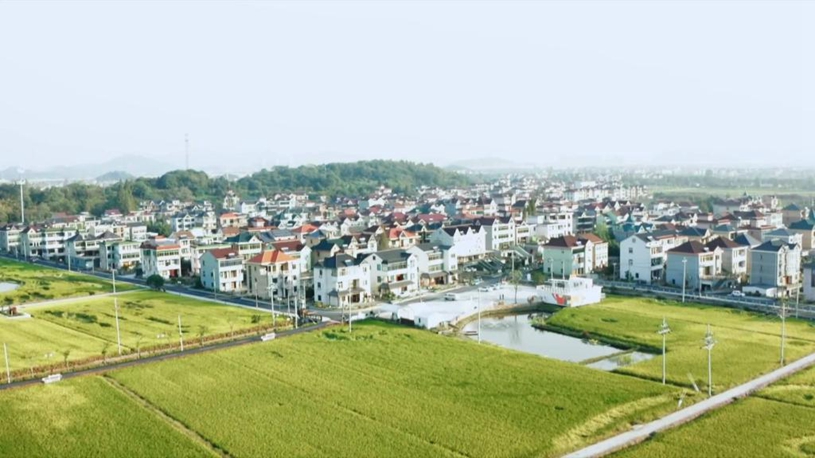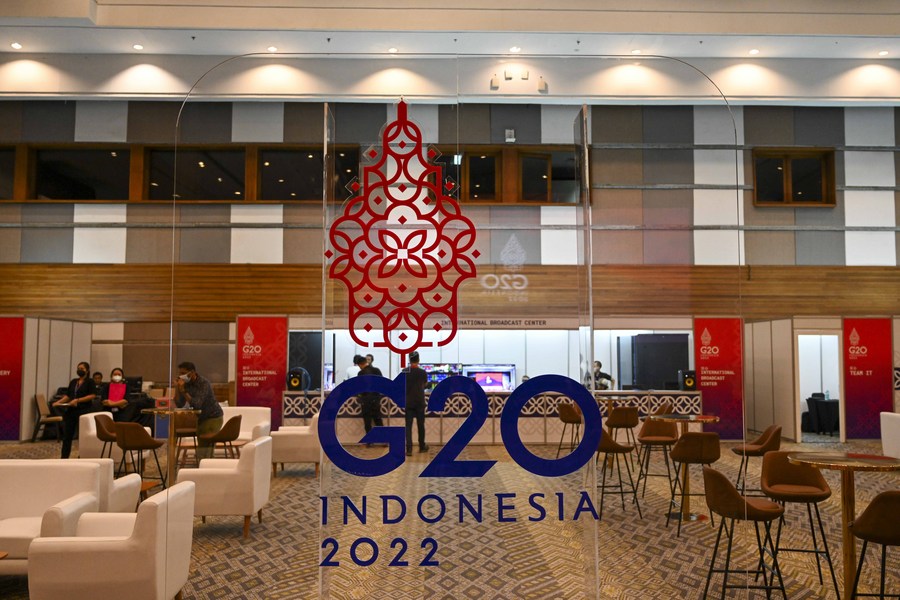
This photo taken on Nov. 12, 2022 shows an interior view of the media center for the upcoming 17th Group of 20 (G20) Summit in Bali, Indonesia. (Xinhua/Zulkarnain)
BEIJING, Nov. 13 (Xinhua) -- Humanity is now facing a perfect storm: stagflation seems to be over the horizon, the COVID-19 pandemic is still bedeviling the world, while growing divisions are corroding urgently needed global cooperation.
At this critical moment, the world community is looking on to see what the coming Group of 20 (G20) Summit in Indonesia and the APEC Economic Leaders' Meeting in Thailand can contribute to building up global consensus and renewing joint efforts.
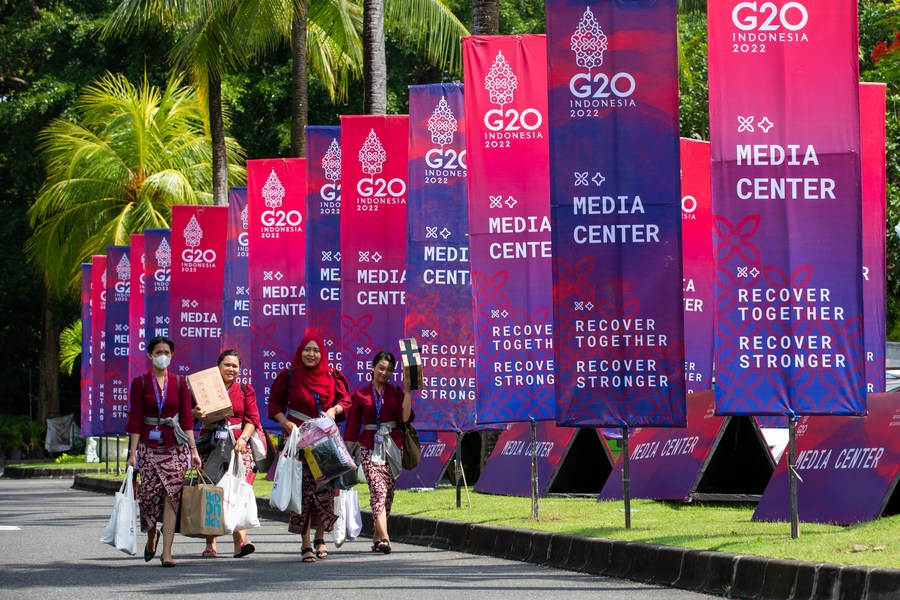
This photo taken on Nov. 13, 2022 shows posters for the upcoming 17th Group of 20 (G20) Summit in Bali, Indonesia. (Xinhua/Wang Yiliang)
A DEFINING MOMENT
It is a moment of a culmination of unresolved challenges, both old -- as were prioritized in the UN Sustainable Development Goals (SDGs) -- and new, which further drag on the global economy and tens of millions of households.
Now three years into COVID-19, the pandemic seems nowhere near over. It has not only led to a dramatic loss of human lives, but also decimated jobs and constituted an unprecedented challenge to public health, food systems, and administrative governance, leading UN agencies have repeatedly warned.
The COVID-19 has shown to perfection that it is imperative for all in the world to recognize that mankind has a shared future and must therefore look out for each other and marshal a collective response to global challenges, Martin Albrow, a fellow with the British Academy of Social Sciences, wrote in his book.
To make matters worse, there are surging inflation and spillovers from the U.S. Federal Reserve's aggressive rate hikes, mounting fears of food and energy insecurity, disrupted industrial and supply chains, failed climate pledges and heightened geopolitical tensions.
Tackling such big global issues needs "the focus for collective activities, which go beyond national boundaries," he told Xinhua.
Addressing the 77th session of the UN General Assembly in September, Retno Marsudi, minister for foreign affairs of Indonesia where the G20 Summit will be held from Nov. 14 to 17, said that the whole world is pinning their hope on the G20 to be the catalyst of global economic recovery, especially for the developing countries.
"G20 must not fail. We can not let global recovery fall at the mercy of geopolitics," she said.
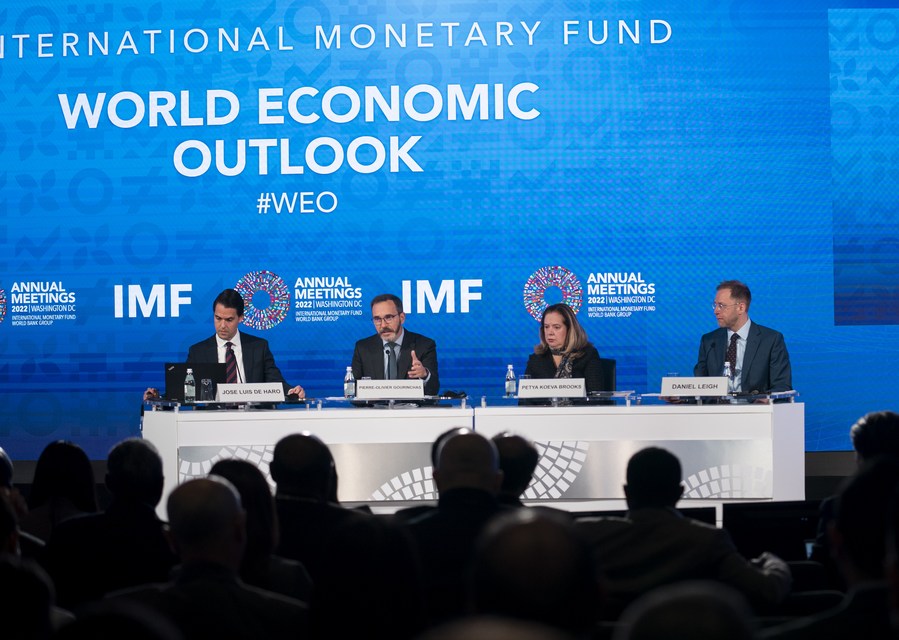
IMF chief economist Pierre-Olivier Gourinchas (2nd L) speaks at a press conference in Washington, D.C., the United States, on Oct. 11, 2022. (Xinhua/Liu Jie)
FIGHT IMBALANCED RECOVERIES
While the year 2021 was one of strong economic recovery, that recovery was neither universal nor complete, particularly with a huge divergence in the pace and quality.
"Our world is in big trouble. Divides are growing deeper. Inequalities are growing wider. And challenges are spreading farther," UN Secretary-General Antonio Guterres has warned.
Moreover, the cascading series of crises weigh on different parts of the world disproportionately, making the unprivileged even more vulnerable.
At the general debate of the UN General Assembly in September, South African Minister of International Relations and Cooperation Naledi Pandor called upon the world to prioritize attending to the needs of "the marginalized and forgotten."
"It will be a tragic indictment on all of us as leaders if future pandemics found the poorest as unprepared as many were for COVID-19," she said.
Take climate change. Without concerted and urgent action, climate change will further exacerbate inequalities and uneven development, said the newly launched Human Climate Horizons, an analysis platform under the UN Development Programme (UNDP).
"It is necessary for developing countries, especially in our African continent, to feel that their priorities are responded to and taken into consideration," Egyptian President Abdel-Fattah al-Sisi said during the ongoing 27th session of the Conference of the Parties (COP27) to the United Nations Framework Convention on Climate Change, calling on developed countries to fulfill their climate pledges to help developing countries that suffer the most from the climate crisis.
History shows that poverty and crisis usually exist side by side. Uneven and fragile recoveries breed hatred, divisions and conflicts, further weighing on international cooperation and plunging the global economy into a vicious circle.
Bearing in mind that development holds the master key, China has not only managed to narrow development gaps at home through poverty alleviation and a robust modernization drive, but also proposed a Global Development Initiative (GDI), joining hands with other countries to spur growth and share dividends.
The GDI is "a 'remobilization' of world development cooperation and a 'reaffirmation' of the people-oriented concept," said Fahd Almenei, a researcher with the Center for Research and Intercommunication Knowledge of Saudi Arabia.
"We're looking for multiple worlds not one world controlled by some powers ... We're looking for new economic institutions and a new model that can really lead to bringing a positive new form of economic multilateralism in the world," said Adel Mehany, a professor of international economy in Egypt.
China gives an example in this regard that the world can adopt in the near future, he said. "It is a system that is based on sharing not hostility, on assistance not looting, and on understanding not clashing." ■

